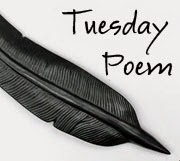
Shortly after the publication of Swings and Roundabouts: Poems on Parenthood (which you can buy online from Fishpond or New Zealand Books Abroad), I gave my initial thoughts on the book, but said that I wouldn't review it because I have a poem in it.
Well, I changed my mind. I've completed reading Swings and Roundabouts over the past two weeks, and though I'll leave my own poem Coverage to speak for itself, I want to reiterate what a good book this is.
It's true that Swings and Roundabouts is likely to speak most strongly to parents, but these poems are strong as poems, not just as aspects of parenthood. After an excellent introduction by editor (and parent) Emma Neale, the book is organised in chronological order, starting with pregnancy and ending with the deaths of children and parents - though the tone of this final section is not morbid. The poems are interspersed with quirky and enjoyable photos by Mark Smith.
This is predominantly an Australasian anthology, but it also includes poems by Sylvia Plath, Sharon Olds and Louise Glück. In her introduction, Emma Neale suggests that Lauris Edmond could be regarded as the local poet laureate of childhood, and she has five poems here. Many well-known New Zealand poets are represented.
There are hardly any poems I don't like, but poems that especially stand out include "Helpless" and "Yellow Plastic Ducks" by Graham Lindsay, "The Vending Machine" by Anna Jackson, "35/10" by Sharon Olds, "Your Secret Life" and "Your Secret Life 2" by Harry Ricketts, "It Allows a Portrait in Line Scan at Fifteen" by Les Murray (and yes, the title does make perfect sense, and is very moving, in the context of the poem), "Festive Lentils" by James Norcliffe, "Stay in Touch" by Laurice Gilbert, and "The Names" by Lauris Edmond.
But if I had to choose just one poem from this book, it would be "Child" by Sylvia Plath: small, vivid, memorable.
Like a child, like this book.



2 comments:
Interesting, your comment about Les Murray's title for his poem. I find him one of the densest poets I've read, and often the only way I can make sense of some of his poems is to literally memorize them, and let their meaning gradually filter through what must be a fairly thick brain.
However, there are still occasional lines that are beyond me!
Ah, but this title does make perfect sense in the context of the poem - which is about an autistic boy, whom I presume, but don't know, to be Les Murray's son.
Post a Comment